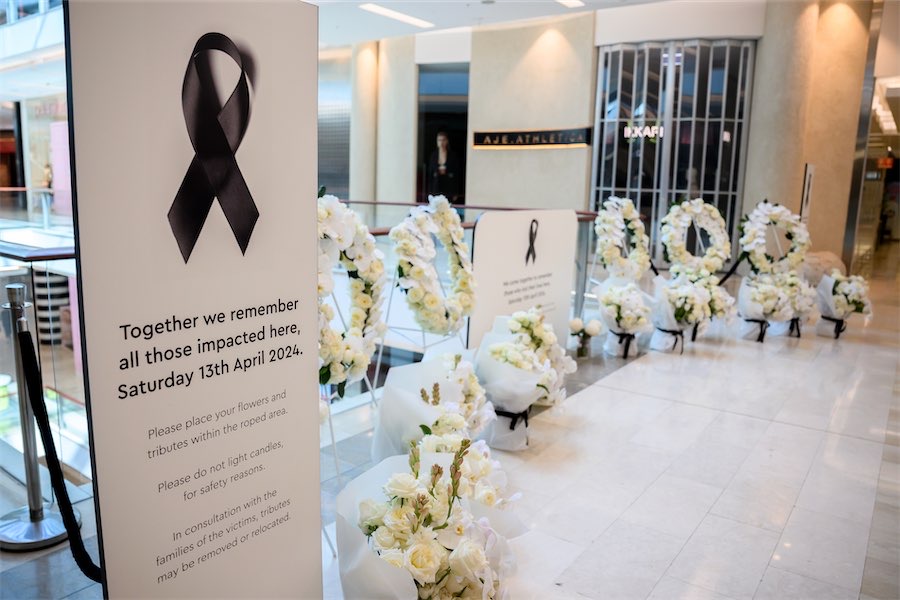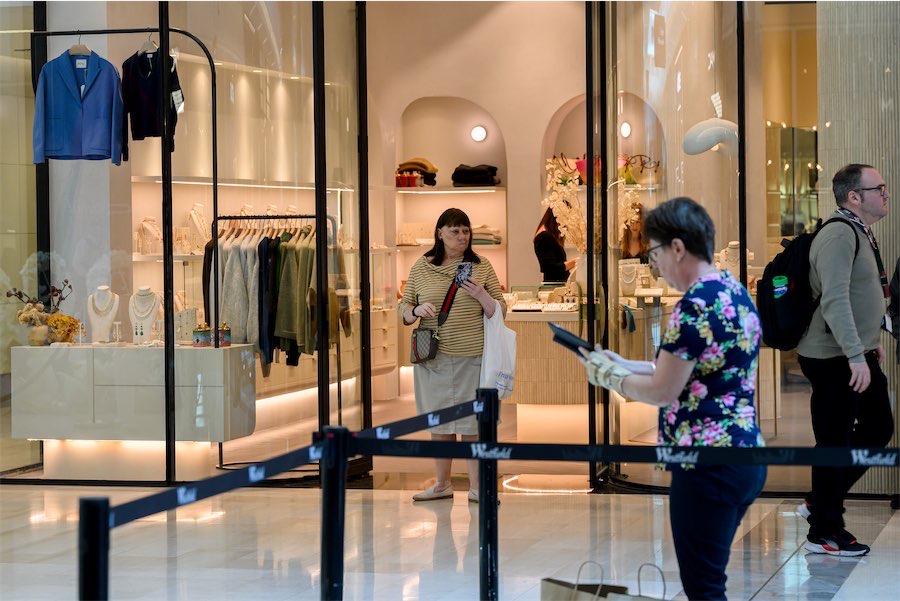WHILE fashion can be fickle, it’s become one of the most faithful outlets for Afghan refugee Karima Aqel.
Since arriving in Australia last year, Karima has found solace working as a trainee for No Sweat Fashions, a not-for-profit Canberra social enterprise that helps refugees and migrants break away from barriers they often face, such as difficulty finding employment and social isolation.
“I want working, but I not understand. I need English… I understand sewing,” Karima says, as a handful of women around her busily sew, cut and measure fabrics.
Founded by local business leader Cindy Mitchell in 2011 and held at Kaleen’s University of Canberra High School, No Sweat Fashions provides training and employment for migrants and refugees as sample makers, tailors and machinists, aiming to educate them about their legal working rights in Australia.
“In spite of all of the protections of our democracy, ‘sweatshop’ work practices still exist in the garment industry in Australia,” says Cindy. “These businesses are most likely to hire individuals from non-English speaking backgrounds. When our trainees ‘graduate’ we expect it to be with the knowledge of their legal rights at work and the confidence to demand them.”
Following the success of the program’s trial in August, the Canberra Institute of Technology joined with No Sweat Fashions to offer a Certificate III in clothing production.
Those taking part in the collective train twice a week on a volunteer basis, primarily because of the program’s lack of funds.
It is hoped graduates can then go on to either find work in the fashion industry or work on a contractual basis for No Sweat Fashions.
Creative director of the program, Penina Huho, says 13 women – predominantly from Burma, Sri Lanka and Afghanistan – are in training, and many are already equipped with sewing skills.
“We have somebody who has done work with [Australian fashion designer] Akira, while others have fashion backgrounds in an informal way, such as making clothes and repairing things in refugee camps,” Penina says.
Trainees are currently making scarves and bags, and will gradually move on to clothing.
“We are hoping to get them at the same skill level and eventually take on production work with local designers,” Penina says.
Garments will be sold online and stocked by local retailers, with 100 per cent of the profits returned to No Sweat Fashions.
Penina says the work experience has been invaluable for the women and she has seen a “huge change” in their confidence.
“It’s been good in several aspects, not just in learning and developing their skills, but the idea of being connected, and creating a new community not just around their ethnicity, but with people who have similar interests,” she says.
“Because we have a focus on industry and trying to help them become financially independent, they are able to develop themselves in a workplace environment that is community-centred. And that’s something they’ve really enjoyed.”
No Sweat Fashions products available from May 30 at nosweatfashions.com
Who can be trusted?
In a world of spin and confusion, there’s never been a more important time to support independent journalism in Canberra.
If you trust our work online and want to enforce the power of independent voices, I invite you to make a small contribution.
Every dollar of support is invested back into our journalism to help keep citynews.com.au strong and free.
Thank you,
Ian Meikle, editor




Leave a Reply